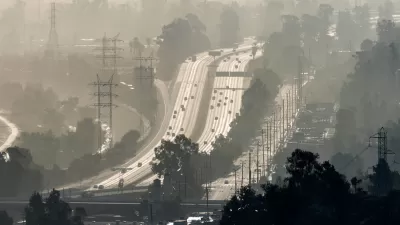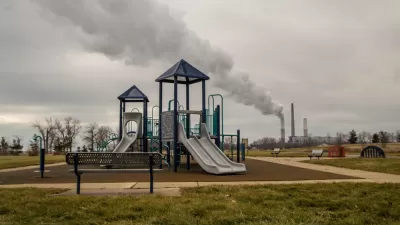Pittsburgh, Pennsylvania took the dramatic step of officially declaring racism a public health threat. Public policy has yet to mitigate the city's worsening air quality, however.

The Pittsburgh City Council voted in December 2019 to declare racism a public health crisis, led by councilmembers Ricky Burgess and R. Daniel Lavelle.
As noted in an article by Brentin Mock, the city's track record of environmental justice has faced criticism from two recent reports: "One was a Columbia Journalism Review report, published in October by Thomas Jefferson University media professor Letrell Deshan Crittenden, entitled [sic] 'The Pittsburgh problem: race, media and everyday life in the Steel City.' The other was a study released in September on gender and race inequality, which found Pittsburgh was statistically among the worst cities for African Americans to live in, particularly for black women."
Mock provides more background on the issues of pollution and race in the city, which calls into question Pittsburgh's accolades at the country's "most livable city." The vote coincidentally timed with weather that blanketed the city in smog for weeks.
According to Mock, the vote by the council followed the lead of Madison and Milwaukee, Wisconsin, the first cities to pass this kind of legislation earlier in 2019. The Pittsburgh City Council's vote, however, lacks any funding to back up words with deeds, so progress on the environmental justice challenges facing the city is still to be determined.
FULL STORY: How Racism Became a Public Health Crisis in Pittsburgh

Alabama: Trump Terminates Settlements for Black Communities Harmed By Raw Sewage
Trump deemed the landmark civil rights agreement “illegal DEI and environmental justice policy.”

Planetizen Federal Action Tracker
A weekly monitor of how Trump’s orders and actions are impacting planners and planning in America.

How Atlanta Built 7,000 Housing Units in 3 Years
The city’s comprehensive, neighborhood-focused housing strategy focuses on identifying properties and land that can be repurposed for housing and encouraging development in underserved neighborhoods.

In Both Crashes and Crime, Public Transportation is Far Safer than Driving
Contrary to popular assumptions, public transportation has far lower crash and crime rates than automobile travel. For safer communities, improve and encourage transit travel.

Report: Zoning Reforms Should Complement Nashville’s Ambitious Transit Plan
Without reform, restrictive zoning codes will limit the impact of the city’s planned transit expansion and could exclude some of the residents who depend on transit the most.

Judge Orders Release of Frozen IRA, IIJA Funding
The decision is a victory for environmental groups who charged that freezing funds for critical infrastructure and disaster response programs caused “real and irreparable harm” to communities.
Urban Design for Planners 1: Software Tools
This six-course series explores essential urban design concepts using open source software and equips planners with the tools they need to participate fully in the urban design process.
Planning for Universal Design
Learn the tools for implementing Universal Design in planning regulations.
Caltrans
Smith Gee Studio
Institute for Housing and Urban Development Studies (IHS)
City of Grandview
Harvard GSD Executive Education
Toledo-Lucas County Plan Commissions
Salt Lake City
NYU Wagner Graduate School of Public Service





























